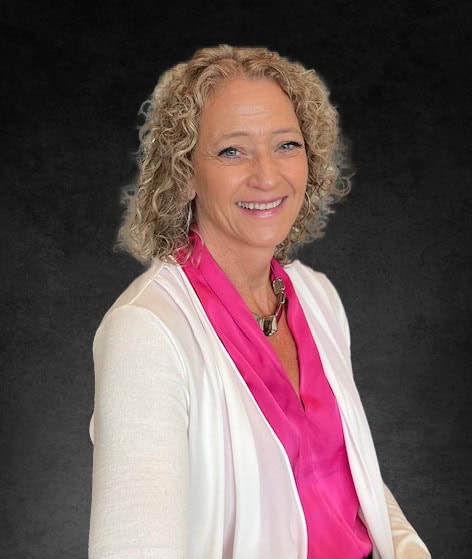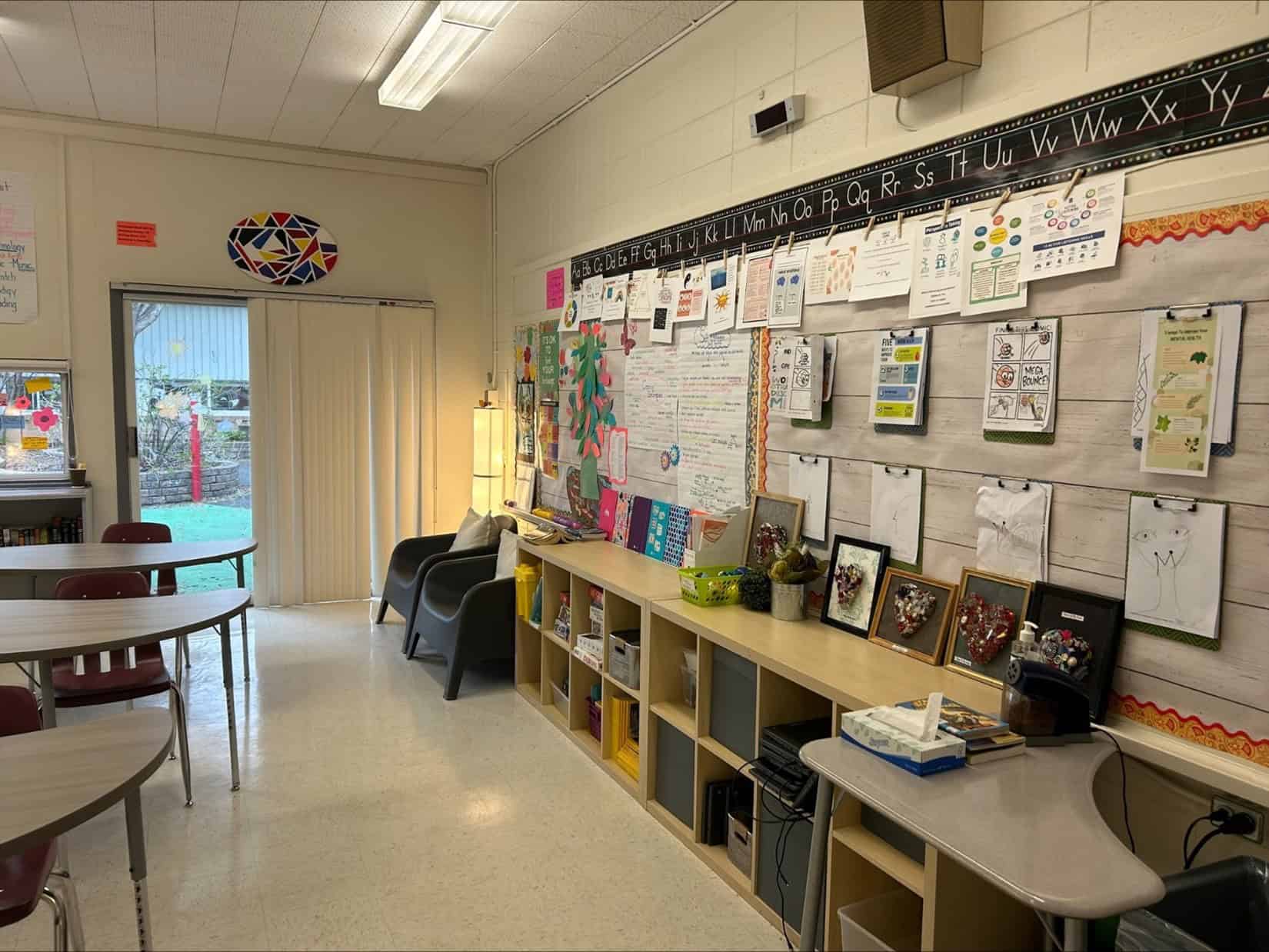More services and more capacity for Alberta families, closer to home.
Lori Roe is deeply committed to improving outcomes for children, youth and families.
Earlier this year, CASA welcomed two new directors to its Senior Leadership Team to lead the expansion of much-needed mental health programs and make a life-changing difference for more families. Lori, CASA’s Director, Clinical is leading the expansion of the CASA Classrooms program to seven new locations across Alberta in fall 2025. This proven model of school-based mental health care is entering its third school year of bringing specialized mental health treatment to students in Grade 4 through 12 where they live and learn.

Lori has more than 30 years of clinical and leadership experience in mental health services, program development and system-wide collaboration – essential to building collaborative relationships with school boards and community partners. CASA’s dedication to the “missing middle” in mental health aligns perfectly with her passion for integrated service delivery and for ensuring accessible, high-quality care. She holds a master’s degree in clinical social work and has been a registered social worker for almost 30 years. She proudly calls Calgary home.
The Classrooms program is part of a larger expansion of CASA services across Alberta. CASA House and the Adolescent Day Program will establish new facilities and programs in Fort McMurray, Calgary and Medicine Hat and a new CASA House will be established in the Edmonton region.
Learn more about Lori’s vision for CASA Classrooms below.
What are CASA Classrooms?
In a CASA Classroom, students receive individual and group therapy, medical care and school programming all right within the classroom. But programming doesn’t stop there. We help families to better support their children at home by offering them mental health education and connections to community supports. We’re also ensuring schools receive the tools they need to support students to thrive – not only the students returning from CASA Classrooms, but all students who walk through their doors.
What kind of children and youth are served in CASA Classrooms?
We target specific grades in a geographical area, to ensure students of similar developmental levels are together. Students can come from any school within the outlined geographical area.
Students who attend CASA Classrooms need a targeted, frequent level of mental health support. Classroom staff help them to work on goals that provide them with skills that can be applied back at their own schools and allow them to thrive. Students who attend CASA Classrooms often have a diagnosis (or suspected diagnosis) of ADHD, depression, anxiety or social/peer concerns. These classrooms are not designed for students with chronic or severe mental health concerns or significant behavioural issues.
What makes CASA Classrooms unique, compared with other mental health programs?
Being situated within existing community schools, CASA Classrooms are more accessible and have allowed us to expand across the province without needing to build new CASA infrastructure. CASA Classrooms offer a “milieu,” meaning it’s an experiential classroom where the student’s unique mental health needs can be assessed and treated while they experience a typical classroom setting with their peers. This allows students to practice skills as they learn them. It’s important for our team to be able to observe students while they’re in times of transition and peer interaction. It allows us to fully assess their strengths, challenges and needs in a natural, everyday setting.
We also have strong wraparound services outside of the classroom. These services support students and families in their own communities. Finally, we offer an additional five months of tapered support when the student leaves the program. This often looks like check-ins with the family, capacity building where needed, warm hand-offs to community health care providers and other services – allowing us to ensure the student and family are set up to succeed after the program ends.
What types of support do CASA Classrooms offer to families?
We have a therapy support navigator and a mental health nurse who work in the community and offer a bridge of support between families, community resources and the referring schools. The entire team works with families to determine their needs and identify additional services that may be of help or support and assist them in getting connected to those services. Our navigator and nurse also run a psychoeducational group for our parents and caregivers to provide them with evidence-based information about mental health, attachment, brain health, etc. as well as coaching them on the same social-emotional lessons the students receive daily in the classroom.
Wherever possible, we work to provide warm hand-offs to community services and health-care providers so any student or family that needs additional services receives support, guidance and good information.

How do CASA Classrooms help bring CASA’s vision to life?
By bringing mental health supports directly where children live and learn, we reduce barriers to access and offer in-the-moment mental health treatment and support. These children are building the skills they need to thrive, right within their usual environment. We build an understanding of each student’s unique needs so the community around that child can support their ongoing success.
Where are CASA Classrooms headed over the next two years?
We currently have 18 classrooms open and have seven new classrooms opening in fall 2025. Our hope is to have up to 30 classrooms open by next year, with even more opening in September of the 2026-27 school year. Ultimately, CASA’s plan is to launch up to 60 classrooms across the province.
CASA Classrooms is CASA’s newest program. Like any new program, we’re learning and adjusting how we do our work to ensure a quality service that supports children and their families to thrive in their communities. As we grow and refine our services, we will be engaging our CASA families to help inform our processes, as well as reaching out to our communities to ensure we are working together with them in the best possible way.
What’s something about CASA Classrooms people may not know that you want to highlight?
I think the easiest thing to share would be the overall success we’re seeing in student outcomes, particularly around improvement in mental health. Between April 2024 and March 2025, 88 per cent of patients and families reported they were satisfied with Classroom-based services, including personalized treatment options offered. One hundred per cent of caregivers reported they were satisfied with the services, while 76 per cent were patients.
Feedback from one CASA parent noted the CASA Classrooms program removed the barriers to accessing mental health services they were experiencing:
“The CASA program was incredible for my son and helped him beyond measure. I feel it helped him establish a stronger foundation for his educational journey and helped set him up for success,” the parent said in a recent feedback survey.
“The added support while he transitioned out of the program was also an asset to both him and myself. As a parent I have never felt more like I was part of a collaborative team with my child’s teachers and education staff as I did when he was in the CASA program. It was an extremely positive experience.”
What I also love is that many of our Classrooms have worked with their students to provide some level of “giving back” to their host schools or communities. One high school classroom brought in donations and the students in the CASA Classroom and the school could “shop” items for themselves or as gifts. One of our junior high classes organized a teacher coffee cart and would go around delivering coffee to the teachers in the school. Future classrooms will also be a part of contributing to our communities through involvement in park and green space cleanup.
What are you most excited about over the next year, and in this new role?
Having that provincial scope and lens will allow CASA Classrooms to really formalize a strong and consistent framework and model. This service is so needed and right now, there are still children and youth out there who are simply “managing” when they could be thriving. To have the opportunity to work alongside my fellow directors, our CEO, Board and all the amazing CASA programs, I have the privilege to be part of providing a level of care to our children and families that will allow them to achieve the best possible outcomes.
Children and families have always been at the centre of everything I do. I grew up in a northern community where there were simply no specialized services for children. I feel like this position is what I have been working my entire career to do, and I feel so fortunate to do it with CASA Mental Health.
Learn more about CASA Mental Health’s Services Across Alberta or read our Day Programs and CASA House Director Spotlight.